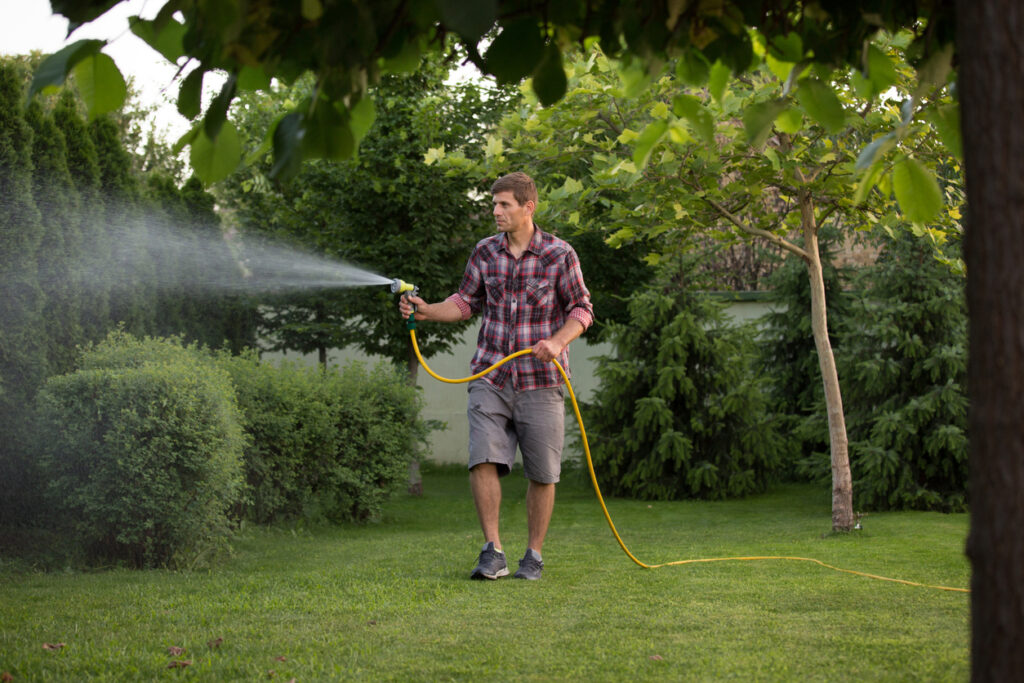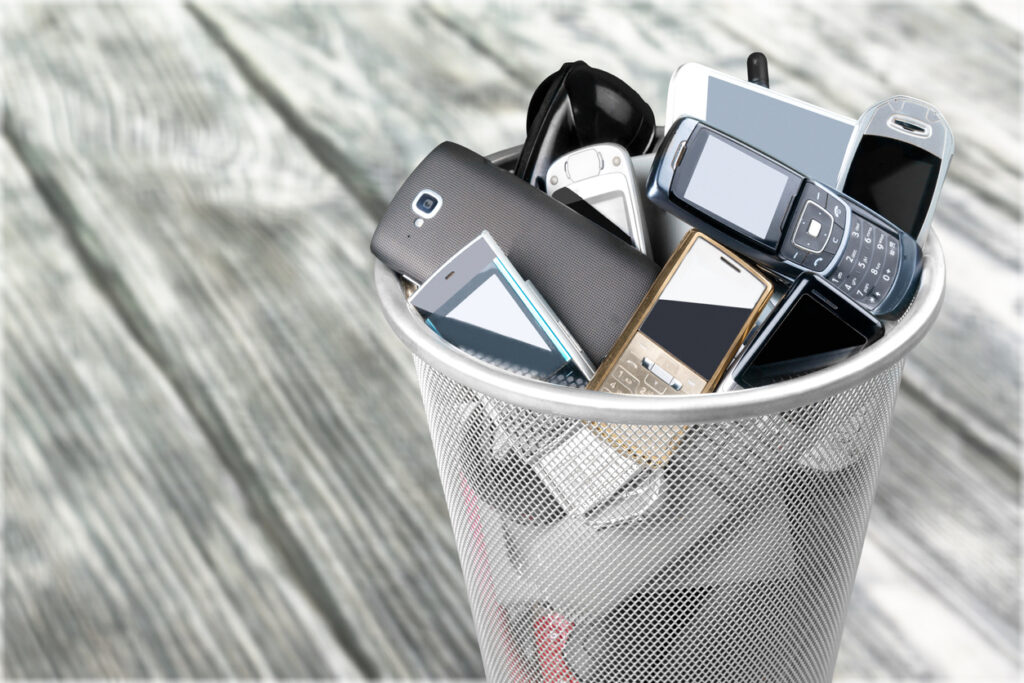Gen Z loves to call out Boomers for their wasteful habits—but are they really doing better?

Boomers grew up in a world where convenience was king, and environmental concerns took a backseat. Disposable plastics, gas-guzzling cars, and a “bigger is better” mentality shaped their way of life. Now, Gen Z is leading the charge on sustainability, calling out older generations for habits that harm the planet. They shame Boomers for not recycling properly, overconsuming, and ignoring climate change warnings.
But some of these so-called “bad” habits aren’t as simple as they seem. Boomers may have relied on disposable products, but they also mended clothes, cooked at home, and didn’t replace their phones every year. Meanwhile, Gen Z is guilty of its own eco-contradictions. Still, the generational divide on green living is real, and younger voices are making it clear that wasteful habits need to go.
Here are 14 environmental offenses Boomers are frequently called out for.
1. Driving gas-guzzling cars instead of switching to EVs.

Boomers are often accused of refusing to give up their oversized SUVs and gas-guzzling trucks. Gen Z argues that with climate change at crisis levels, there’s no excuse not to switch to electric vehicles (EVs) or at least hybrid models. Public transportation and biking are also championed as better alternatives.
But for many Boomers, it’s not that simple. They already own their cars and don’t see the need to replace something that still runs. Plus, in many areas, EV charging infrastructure is lacking, making the switch impractical. While younger generations push for change, the reality is that not all of the Gen Z crowd can afford or easily transition to an EV just yet, according to Isabel Vincent of the New York Post.
2. Using single-use plastics without a second thought.

Boomers grew up in a world where plastic was considered a modern marvel. They stocked up on plastic grocery bags, drank from disposable cups, and didn’t think twice about tossing a plastic straw. Gen Z sees this as one of their biggest offenses, advocating for reusable alternatives like metal straws, tote bags, and refillable water bottles, as stated by Noah Brode of Civic Science.
Yet, plastic waste isn’t just a Boomer problem. Many Gen Zers still grab bottled drinks, forget their reusable bags, and rely on plastic-heavy takeout. The truth is, while sustainable swaps are encouraged, convenience often wins—no matter the generation.
3. Wasting food instead of composting.

Boomers often get called out for overbuying groceries or not making an effort to compost. Gen Z pushes for meal planning, portion control, and composting food scraps instead of letting them end up in landfills.
But Boomers aren’t entirely to blame here. Many of them grew up in households where wasting food was unacceptable. They learned to stretch meals and repurpose leftovers, something younger generations could actually learn from. While composting is a great step forward, food waste is an issue across all age groups, based on the findings of Andrei Ionescu of Earth.com.
4. Keeping every light on in the house.

Walk into a Boomer’s home, and there’s a good chance you’ll find lights on in rooms no one is using. Gen Z, hyper-aware of energy conservation, is quick to point out that switching to LED bulbs and turning off unnecessary lights is a simple way to cut down on electricity use.
Boomers, however, grew up in a time when energy was cheap, and old habits die hard. Some have made the switch to energy-efficient bulbs, but remembering to turn off the lights isn’t always second nature. While younger generations love to lecture on energy savings, they’re also guilty of leaving chargers plugged in and binge-watching on energy-draining devices.
5. Choosing convenience over sustainability when grocery shopping.

Boomers get called out for buying over-packaged foods, using plastic produce bags, and not making an effort to shop at farmers’ markets or bulk stores. Gen Z encourages shopping local, avoiding excess packaging, and bringing reusable containers.
Yet, many Gen Zers still rely on fast grocery delivery services, snack on individually wrapped protein bars, and grab convenience foods just as often as Boomers. While the push for sustainable grocery habits is valid, changing ingrained shopping patterns is easier said than done.
6. Ignoring climate change warnings.

Gen Z is passionate about climate action and often criticizes Boomers for dismissing environmental concerns. They blame older generations for decades of pollution, unsustainable practices, and failing to take climate science seriously.
But while some Boomers remain skeptical, many do acknowledge climate change—they just don’t always agree on the solutions. And while Gen Z raises awareness, many still participate in high-carbon activities, such as frequent flying and excessive consumerism. Passion for the planet is important, but real change requires action, not just words.
7. Using excessive paper products.

Boomers are known for their love of paper towels, printed documents, and stacks of junk mail. Gen Z pushes for digital alternatives, cloth napkins, and less reliance on paper overall.
But Boomers also grew up in an era where reusable products were the norm—think cloth diapers, handkerchiefs, and repairing instead of replacing. Meanwhile, Gen Z may advocate for sustainability but still participates in heavy paper use through school materials, planners, and unnecessary printouts.
8. Overwatering lawns and keeping non-native grass.

Boomers are known for their obsession with green, manicured lawns, even in drought-prone areas. Gen Z prefers drought-resistant landscaping, rainwater collection, and letting nature take its course.
But maintaining a yard is about more than just aesthetics for Boomers—it’s a deeply ingrained part of homeownership culture. While younger generations advocate for eco-friendly landscaping, many still live in apartments where they don’t deal with lawn care at all, making their criticism easier to give than to follow.
9. Ordering coffee in disposable cups instead of bringing reusable ones.

Boomers frequently grab their morning coffee in a disposable cup, much to the dismay of Gen Z, who argue that bringing a reusable mug is a simple way to reduce waste.
Yet, despite their advocacy, most Gen Zers still order their lattes in plastic cups without thinking twice. Convenience often wins, even for those who push sustainability.
10. Tossing electronics instead of recycling them.

Boomers are often guilty of throwing out old phones, TVs, and computers instead of recycling them properly. Gen Z pushes for e-waste recycling programs and donating still-functional devices.
Yet, Gen Z is also responsible for a tech waste crisis, upgrading phones every year and chasing the latest gadgets. Boomers may not recycle perfectly, but they’re also less likely to replace electronics as frequently as younger consumers.
11. Using too much plastic wrap and aluminum foil.

Boomers tend to rely on plastic wrap and aluminum foil for food storage, while Gen Z promotes reusable alternatives like silicone lids and beeswax wraps.
But old habits are hard to break, and for Boomers, plastic wrap has always been the go-to. Meanwhile, younger generations still use plenty of disposable items, despite their sustainability push.
12. Over-reliance on cars instead of walking or biking.

Boomers are more likely to drive everywhere, even for short trips. Gen Z advocates for public transportation, biking, and walkable cities.
Yet, many Gen Zers still rely on cars, especially in areas with limited public transit. While they call for change, real infrastructure improvements take time.
13. Supporting brands with poor environmental records.

Boomers get criticized for shopping at major retailers with poor sustainability practices. Gen Z pushes for ethical brands, thrifting, and conscious consumerism.
Yet, Gen Z still supports fast fashion, online shopping, and companies with questionable labor practices. Aligning values with actions is an ongoing struggle.
14. Taking long showers despite advocating for conservation.

Boomers love long showers, but Gen Z preaches water conservation.
That said, plenty of younger people still take indulgent showers, proving that breaking bad habits is a challenge across generations.
